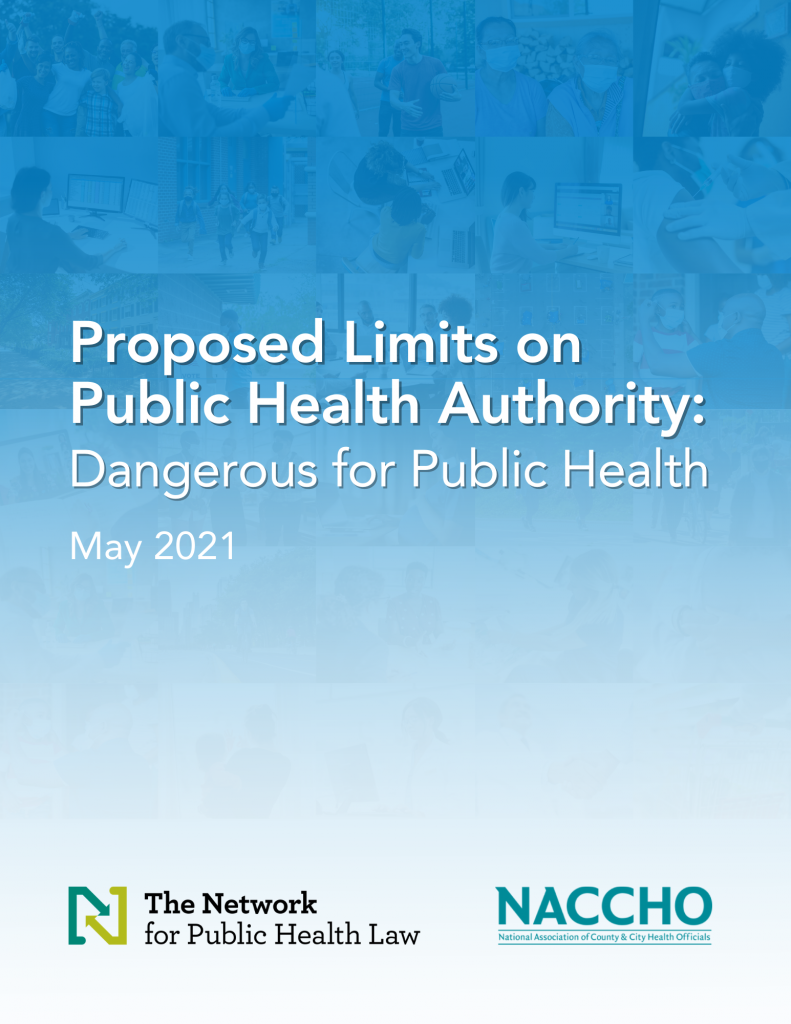New Report on Proposed Limits on Public Health Authority
Proposed Limits on Public Health Authority: Dangerous for Public Health

In recent months, at least 15 state legislatures have passed or are considering measures to limit severely the legal authority of public health agencies to protect the public from serious illness, injury, and death. Other states may consider such legislation in the future. It is foreseeable that these laws will lead to preventable tragedies.
This report, developed by the Network for Public Health Law (Network) and the National Association of County and City Health Officials (NACCHO), explains the important role of public health authority in protecting the health of communities, and provides examples of specific laws that would limit public health authority, including those that:
- Prohibit requiring masks in any situation, including cases of active tuberculosis. In North Dakota, a new law would remove the authority of the state health office to require face masks or covering.
- Block the closure of businesses necessary to prevent the spread of disease, allowing for super spreader venues. In Kansas, a new law removes the Governor’s ability to close businesses during a public health emergency.
- Ban the use of quarantine. In Montana, a new law prohibits local board of health emergency orders from separating those individuals who are not yet ill, but reasonably believed to be infected or exposed. Prohibition of quarantine orders undermines the basis of infection control and would make it impossible to stop outbreaks of deadly diseases that are spread by individuals who are not yet symptomatic.
- Block state hospitals and universities from requiring vaccinations for employees and students in dormitories to protect state residents. In Arizona, a new law prohibits requirements that a person receive a vaccination, except in K-12 school settings and creates criminal penalties for violating the ban.
- Strip local governments, including local health agencies, of the ability to respond to local conditions in an emergency. In Texas, a proposed bill would preempt local emergency action to the extent that it is inconsistent with orders of the Governor or state health department.
- Set arbitrary time limit for emergency orders. In Florida, a new law provides for automatic expiration of local orders after seven days with a majority vote of the local governing body required for an extension, limits the total duration of local orders to 42 days, and prevents the issuance of a substantially similar order for the same emergency if a previous order has expired.
- Give unilateral power to legislatures to stop public health actions. In Ohio, a new law will allow the legislature alone to rescind any order or action by the state health department or director of health to control or spread the spread of contagious or infectious disease. The Governor, who vetoed the law, issued a statement saying that the law “strikes at the heart of local health departments’ ability to move quickly to protect the public from the most serious emergencies Ohio could face.” The Governor’s veto was overridden by the legislature and the law will take effect June 23, 2021.

